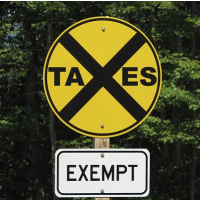Wednesday, July 16, 2014
 In the wake of congressional investigations into the agency's work, the Internal Revenue Service (IRS) has dramatically backed off on reviewing the applications of groups seeking tax-exempt status.
In the wake of congressional investigations into the agency's work, the Internal Revenue Service (IRS) has dramatically backed off on reviewing the applications of groups seeking tax-exempt status.The IRS, according to TIME, now will only screen about 20% of all applicants requesting tax-exempt charitable status, even though concerns still exist about groups committing fraud and abusing the tax code for political purposes.
The change will certainly make the workload easier at the IRS's Cincinnati office, home of the agency's exempt-organizations division. An 80% reduction in reviews will translate into processing 40,000 to 50,000 fewer 501(c)(3) applications a year.
Starting this month, those organizations wanting to accept tax-exempt donations will have to pay a $400 fee, sign a three-page form, the 1023-EZ, declaring they have an annual income of less than $50,000, swear to having assets totaling less than $250,000, and comply with federal tax rules.
Before, they had to complete a "detailed 26-page form, submit multiple supporting documents and provide a narrative description of their intended activities," TIME reported.
This could enable organizations with no charitable purpose to gain tax-exempt status. "It's easier to get tax-exempt status under 1023-EZ than it is to get a library card," said Tim Delaney, president and CEO of the Council of Nonprofits.
IRS Commissioner John Koskinen told the magazine that the new policy will result in "efficiencies [that] will translate into a faster and better review" of large nonprofits while erasing a 66,000-application backlog that has forced groups to wait a year to get approval of their tax-exempt status from the IRS.
Some are concerned that the 501(c)(3) groups will become like 501(c)(4) groups that allow donors to funnel unlimited anonymous political contributions to "independent" campaign groups, except that now donations will be tax-deductible. "What we'll see is the so-called dark political money that flowed into the (c)(4) world is going to begin to flow into the (c)(3) world," said Marcus Owens, former director of the exempt-organizations division at the IRS.
-Noel Brinkerhoff, Steve Straehley
via AllGov